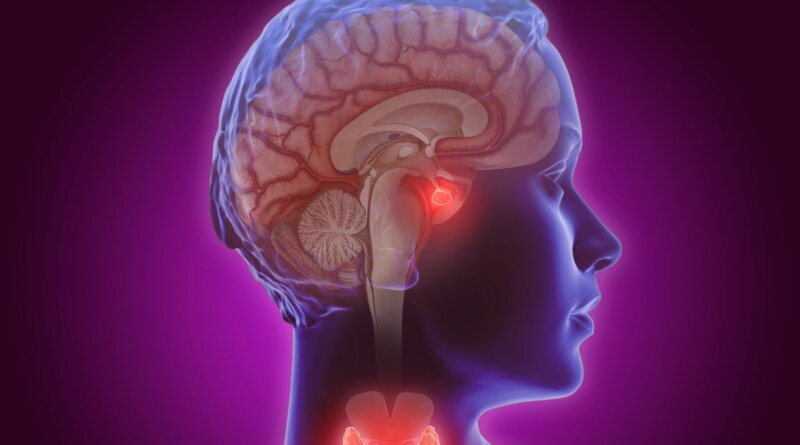Early Menopause May Raise a Woman’s Odds for Dementia
TUESDAY, March 1, 2022 (HealthDay News) — Women who enter menopause early may be more likely to develop dementia later in life, new research indicates.
During menopause, production of the female sex hormone estrogen drops dramatically and a woman’s periods come to an end. While women typically enter menopause in their early 50s, many do so earlier — either naturally or due to a medical condition or treatment such as a hysterectomy (removal of the uterus).
This large study found that women in the U.K. who entered menopause before age 40 were 35% more likely to develop dementia later in life than women who started menopause around age 50.
What’s more, women who entered menopause before age 45 were 1.3 times more likely to develop dementia before their 65th birthday, the new study showed.
“Women with early menopause may need a close monitoring of their cognitive decline in clinical practice,” said study author Dr. Wenting Hao, a Ph.D. candidate at Shandong University in Jinan, China.
The higher risk for dementia may be due to the sharp estrogen drop that takes place during menopause, Hao said.
“Estrogen can activate cellular antioxidants such as glutathione, reduce ApoE4, the most common genetic risk factor in the pathogenesis of dementia, and reduce amyloid plaque deposition in the brain,” she explained.
The build-up of amyloid plaques in the brain is one of the hallmarks of Alzheimer’s disease, the most common type of dementia.
This doesn’t mean that women who start menopause early are powerless against dementia, Hao said.
“Dementia can be prevented, and there are a number of ways women who experience early menopause may be able to reduce their risk of dementia,” he said. This includes getting regular exercise, participating in leisure and educational activities, not smoking or using alcohol, and maintaining a healthy weight, she said.
For the study, researchers compared age at menopause and dementia diagnosis among 153,291 women (average age: 60) who were part of the UK Biobank, a large database of genetic and health information on people living in the United Kingdom. They looked for all types of dementia, including Alzheimer’s.
Postmenopausal women are at greater risk of stroke than pre-menopausal women, and stroke may cause vascular dementia, but the study found no link between age at menopause and the risk of this type of dementia.
While women who entered menopause early were at higher risk of dementia, those who entered menopause at age 52 or later had similar rates of dementia as women who started menopause at age 50 or 51, the study showed.
The new findings held after researchers accounted for other factors that may boost dementia risk, including age at last exam, race, education, cigarette and alcohol use, body fat, heart disease, diabetes, income and leisure and physical activities. The study did not include information on whether women had a family history of dementia or if women entered menopause early for natural or medical reasons, which could affect the findings.
The findings were presented Tuesday at a meeting of the American Heart Association held in Chicago and online. Research presented at medical meetings is typically considered preliminary until published in a peer-reviewed journal.
These findings are consistent with other studies showing a greater risk of dementia among women with premature or early menopause, said Dr. Stephanie Faubion, medical director of the North American Menopause Society and director of the Mayo Clinic Center for Women’s Health.
“The early loss of estrogen is linked with an increased risk of multiple adverse long-term health outcomes, and dementia is just one of them,” said Faubion. Others include heart disease, brittle bone disease, osteoporosis, mood disorders, sexual dysfunction and early death.
There may be a role for hormone replacement therapy, she said.
“In addition to suggesting monitoring of these women, replacing estrogen is a key strategy and has been shown to mitigate dementia risk (and other risks) in women with premature or early menopause,” Faubion said.
For years, hormone replacement therapy was widely prescribed to treat symptoms of menopause and lower risk for heart disease, osteoporosis and dementia. This all changed when the landmark Women’s Health Initiative study showed that taking estrogen and progestin after menopause may increase women’s risk for stroke, heart disease, blood clots and breast cancer. (Estrogen helps with menopause symptoms like hot flashes and vaginal dryness, and progestin is added to protect against uterine cancer in women who still have a uterus.)
Today, hormone replacement therapy may be prescribed in the lowest dose for the shortest amount of time to maximize benefits and minimize potential risks.
More information
The Alzheimer’s Association offers tips on preventing dementia.
SOURCES: Wenting Hao, MD, PhD candidate, Shandong University, Jinan, China.; Stephanie Faubion, MD, MBA, director, Center for Women’s Health, Mayo Clinic, Rochester, Minn., and Jacksonville, Fla., and medical director, North American Menopause Society; March 1, 2022, presentation, American Heart Association meeting, Chicago




